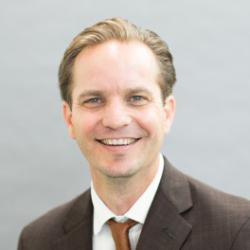Rome contributor to ZENIT, Stefanie DeAngelo, recently interviewed the Acton Institute’s 2012 Novak Award winner, Professor Giovanni Patriarca. During the interview Prof. Patriarca speaks candidly about some of his academic influences, including Michael Novak and Benedict XVI. He also offers his reasons for hope in overcoming the prolonged global economic crisis.
Some Contemporary Reflections: An Itinerary from Novak to Benedict XVI
by Stefanie DeAngelo

ZENIT: You have recently received the Novak Award. What are some of the major contributions of the American philosopher and theologian to our thinking about the current state of the world?
Patriarca: The work of Dr. Michael Novak is so rich that it is not easy to summarize it in a few thoughts. In addition to his famous works on economics, a number of his articles published in the last few years, especially in the journal First Things, explores some of modernity’s contradictions regarding individual and social responsibility and the demise of traditional values that were held by previous generations. As Alexis de Tocqueville also warned, the loss of a metaphysical perspective, leads to materialism and the absurdity of nihilism.
ZENIT: What are some of the more alarming aspects of the economic and moral crisis we face for younger generations?
Patriarca: The crisis of the individual is a collective moral crisis. Young people, who are already confronted by many challenges regarding the economy and work are probably too attracted by empty promises and false myths. A kind of “materialist narcosis”, resulting from an overload of information, alters the natural course of time while continually causing them to postpone asking the “fundamental questions” and immobilizing their natural predisposition to plan for the future and make lasting commitments. They’ve delegated their freedom to the world around them or popular opinion.
ZENIT: Are there any signs of hope?
Patriarca: Of course! At a time when the individual tries to analyze, in the secret of his silence, his own human journey, he often experiences, in various forms, an intimate sense of disorientation and anxiety that can result in aggressiveness or anger. In a recent article that appeared in the influential Italian journal Civiltà Cattolicà, Fr. Giovanni Cucci, SJ talks about the relationship between “positive anger” and hope.
If this anger is properly channeled, it can spur the creation of new ways. The desire for rebirth harbors a deep sense of hope, and since all the virtues are connected, it could lead to solidarity, forgiveness and mutual respect, which have been sorely lacking in our age.
ZENIT: The teachings of Benedict XVI offer us many deeply philosophical ideas. What kind of effects can these have on modern man?
Patriarca: Without going into strictly theological areas, some of his philosophical writing can serve as starting points for future reflections. Secularization has profoundly changed the way we interact with each other. Indifference and hedonism have replaced the natural search for positive solutions and any understanding of mutual responsibility.
Benedict XVI invites us to not sink in the quicksand of “nothing”, but to be creative, active, and ready to take on new challenges, even as a “creative minority” and small communities within civil society.
The veil of indifference can be lifted when the person stops for a moment before the beauty of creation or a work of art, causing him to reconsider, with eyes open to contemplation, and wonder about his role in the world, questioning his destiny and looking for something greater than himself. The recovery of of this “way of beauty” (Via Pulchritudinis) is an essential part of Benedict XVI’s teachings.
(Translation by Viktoria Remenyi)
The article originally appeared in Zenit’s Italian edition “Alcune Riflessioni Sul Pensiero di Benedetto XVI”

